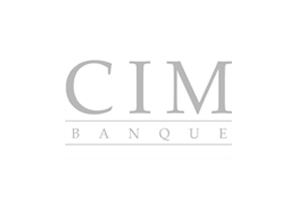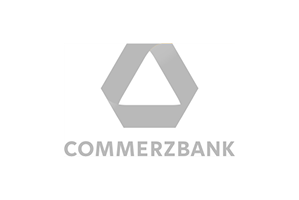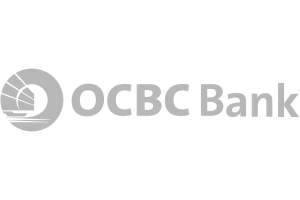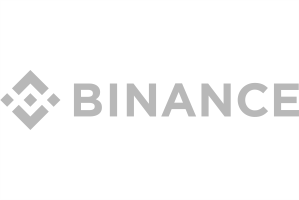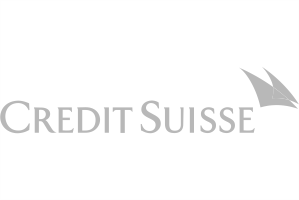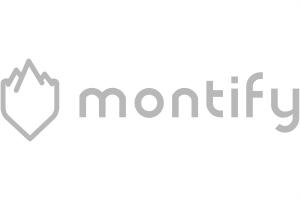The Swiss Financial Market Supervisory Authority (FINMA) is a key authority in regulating financial services. It supervises banking, fintech, insurance, and financial intermediaries such as FOREX and asset management. Depending on the nature of the services, they may require a direct FINMA fintech license or indirect supervision through self-regulatory organizations (SROs).
SROs Regulatory Framework
Under civil law, supervised by FINMA, the Anti-Money Laundering Act requires financial intermediaries to join a self-regulatory organization (SRO) to prevent money laundering. SROs play a crucial role in setting and enforcing due diligence standards.
SRO Responsibilities
Regulation Creation and Monitoring
- Draft regulations that outline due diligence requirements under AMLA.
- Monitor members’ compliance with these regulations.
Enforcement and Control
- Implement systems to verify member adherence to obligations.
- FINMA’s Role
- Supervision of SROs
- Ensures SROs meet standards for preventing money laundering.
Criteria for SRO Recognition
- Regulations must detail AMLA compliance.
- Must monitor and ensure member compliance.
- Must uphold high standards of business conduct, including auditor qualifications and independence.
Compliance and Enforcement
- SRO Regulation Specifics
- Regulations require FINMA approval.
- Must include methods for identifying partners and beneficial owners, reporting suspicions, and compliance monitoring.
Penalties and Accountability
Includes mechanisms for penalizing non-compliance, such as member suspension.
FINMA conducts inspections and can withdraw recognition for non-compliance, underscoring the importance of a FINMA license for regulated firms.
Swiss Fintech License Market Supervision Update
With the enactment of new financial market laws (FinSA, FinIA) and updates to existing legislation on 1 January 2020, Switzerland’s financial market oversight has been enhanced.
FINMA Authorization
Financial entities such as banks, fund managers, and insurance companies require a fintech license FINMA and are under its direct supervision.
Roles and Responsibilities
Supervisory Organisation (SO) — oversees portfolio managers and trustees licensed by FINMA.
Self-Regulatory Organisations (SROs) — monitor AML compliance for financial intermediaries involved in asset management, payment services, and trading.
Key Supervisory Activities
Licensing and Supervision
- Process and review applications.
- Ensure AML and regulatory compliance.
Auditing and Enforcement
- Perform risk-based audits.
- Sanction or revoke memberships for non-compliance.
License Requirements for Financial Services in Switzerland
Obtaining a fintech license Switzerland, commonly referred to as a financial services license, involves meeting specific regulatory criteria without requiring exceptionally high standards from applicants.
Essentials for Applicants
- Management quality.
- Compliance with Anti-Money Laundering (AML) standards.
- Creation, management, and updating of client profiles.
- Assessment of cross-border risks.
Bank Licensing Criteria
To secure a FINMA banking license, applicants must convincingly meet all requirements, with critical ones being:
Capital and Planning
- A minimum fully paid-up capital of CHF 10 million.
- A business plan ensuring compliance with capital adequacy, risk diversification, and liquidity norms.
Operational and Ethical Standards
- Qualified personnel guaranteeing unblemished business conduct.
- Precise description of business activities and geographical reach in official documents.
Management and Structure
- Operation and management from Switzerland.
- Clear separation between strategic and executive management.
- Independent internal functions, including lending and asset management.
Risk and Audit
- Effective risk management for a variety of financial and operational issues.
- An effective internal control system that includes an independent internal audit.
- Appointment of reputable audit companies for licensing and continuing oversight.
International and Group Considerations
- Foreign-controlled applicants enjoy reciprocal rights.
- Adequate consolidated supervision of banks within a financial group.
Documents for FINMA Fintech License Application
A prerequisite for the regulatory authority is a detailed understanding of how the company plans to operate, which will help to obtain a fintech licence Switzerland successfully. This applies to both marketing strategies and customer acquisition procedures, as well as the qualifications of management and staff in certain areas of financial services.
CEO and Management Qualifications
- A comprehensive CV for the CEO, highlighting past roles, experiences, and employer references. Swiss residency for at least one director is a legal necessity.
- The inclusion of social media profiles, contact information, and the relevance of past experiences to the company’s planned activities is crucial.
- Employer references and a motivation letter detailing relevant experience underscore managerial professionalism.
- Certificates of good standing, such as debt register excerpts and criminal record certificates.
- Evidence of higher and relevant postgraduate education, alongside professional publications.
Compliance with Anti-Money-Laundering (AML) Standards
Adherence to national legislation and international treaties on AML and terrorism prevention is scrutinized.
The GwG (Anti-Money-Laundering Act) outlines due diligence in financial transactions to combat money laundering and terrorist financing.
FINMA sets norms for client transaction oversight, onboarding processes, audit frequency, and procedures for reporting suspicious activities.
MROS (Money Laundering Reporting Office) plays a key role in stopping suspect transactions by gathering information on questionable activities and coordinating with international AML bodies.
AML Officer Role
- Essential for monitoring AML procedures and their effectiveness within the company.
- May be an in-house role or outsourced to a firm providing external AML officer services, bearing the same documentation requirements as the company director.
Cross-Border Risks and Client Profile Management
Careful management of cross-border risks and diligent client profile management are prerequisites for obtaining a Swiss fintech license. Financial institutions must comply with both Swiss law and the laws of the countries where their clients are resident, even though Switzerland is not a member of the EU. In particular, this applies to taxes and international sanctions.
Cross-Border Risk Management
International Compliance
Adherence to regulations in the client’s country of residence, including tax laws and sanctions (e.g., U.S. tax obligations, Germany’s tax rules, sanctions against countries like South Sudan).
Client Onboarding
Development of procedures, potentially outsourced to legal firms or managed by an AML/Compliance Officer, to ensure regulatory alignment and risk mitigation.
Client Profile Management
Risk Assessment and Compliance
- Continuous monitoring to ensure adherence to imperative legal norms.
- Identification of high-risk categories such as Politically Exposed Persons (PEPs), sources of funds, and individuals with criminal records.
- Client acceptance based on a thorough risk evaluation.
Maintenance and Oversight
- Compliance tasks can be fulfilled by an in-house AML Officer or an external compliance provider, with detailed role profiles included in the SRO application.
- Varies based on the risk associated with the operation and regulatory audit requirements, ranging from semi-annual for cryptocurrency businesses to annual for traditional asset management firms.
FINMA Fintech License Application Costs
Applying for a FINMA license incurs specific fees in addition to preparation costs, vital for applicants to consider:
Regulatory Fees Overview
Application Fee — charged for processing the application.
The first-Year Fee — covers the license’s initial operational year.
Expedite Fee — optional fee to fast-track the application process.
Estimated Expenses
Total regulatory fees range between 2,000 and 8,000 CHF, not including the separate charges for mandatory audits conducted by SROs or auditors, which are based on hourly rates.
FAQ
What types of financial services require FINMA regulation in Switzerland?
Switzerland’s financial services, including banking, fintech, insurance, and various intermediary services (e.g., FOREX, asset management), are regulated by FINMA. Services may fall under direct FINMA oversight or indirect regulation via Self-Regulatory Organisations (SROs).
What are critical considerations for a financial services license application?
Applicants must prioritize the company’s management quality, AML compliance, client profile management, and cross-border risk assessments over financial metrics like capital volume or company age.
How should financial intermediaries manage client profiles?
Effective client profile management involves ensuring legal compliance, evaluating risks (including those posed by politically exposed persons or unclear fund sources), and deciding on client onboarding. This can be managed internally or through external compliance services.
What are the fees and expected timeline for obtaining a license?
The application process incurs fees ranging from 2000 to 8000 CHF, excluding audit costs. The timeline for application review is typically 4-12 weeks, depending on various factors such as the applicant’s risk level and organizational structure.
